If you’ve read enough of my writings, you know that I am an activist for the rights of all people – especially Autistic people – to communicate using whatever method it works for each individual.
Communication and Autism Acceptance
Everybody communicates.
Communication doesn’t need spoken words.
Communication doesn’t need words at all.
Behavior is communication.
Smiles, looks, our bodies – those are used for communication and they are as valid as any word.
I can type, and I like to type.
Even if typing is exhausting, I still use this method to speak out.
Interaction and Autism Acceptance
But I don’t always use typing in my interactions.
I usually don’t engage in face-to-face conversations.
I prefer to use my eyes, my body and my smiles on my daily interactions with the people I know and trust.
I am typing this because many people confuse being silent with being silenced. Many people confuse the wish of speaking out and being heard with a desire for small talk – which I call “small type”.
Some non-speaking Autistics might like to have conversations about all and any subjects, or even about nothing important.
I am not one of those. I don’t really know how to respond to the “small type” conversations.
Typing makes me tired so, when interacting in person, I might prefer to use other methods, “non-wordy” methods of communication.
Even online, sometimes I find it difficult to interact in conversations. It is too fast, I get tired and overwhelmed with the information coming in, and with all the thoughts I want to convey.
When I am able to engage for longer periods of time, I need a lot of recovery time.
I already wrote about my typing process, how the information is gathered, how I see my words, then the sentences, then the whole message in my head; how I then have to make the words travel from my brain to my finger and to the keyboard. And how each letter has to make the same long journey. There are no short cuts.
When I type, it is because I want to be heard.
When I type, it is because I have a message, an idea, a thought I want to convey.
When I type, it is because I am answering questions that I find important.
I try to use my “spoons” wisely, to be able to convey my message.
In the few occasions when I do type “small type”, it is because I feel like the words are going to burst out of my head.
Ableism and Autism Acceptance
Ableist and unaccepting parents of non-speaking Autistics like to say that they feel “so sad” because their children will “never say ‘I love you’” to them. They martyrize themselves. But some parents – many times accepting parents – of non-speaking Autistics who do type also engage in ableism when they expect their children to type “I love you” – just because they can type their thoughts.
(I am using the “I love you” example but the same goes for any conversation)
Sometimes we just don’t feel like it, or cannot, type according to other people’s expectations. We shouldn’t be expected to fulfill normative expectations. Acknowledging this is part of the Autism Acceptance we fight for. It is about Respect.
I fight against being silenced, but I might choose moments of silence.
Being silent is not the same as being silenced. Being silent is not the same as not feeling.

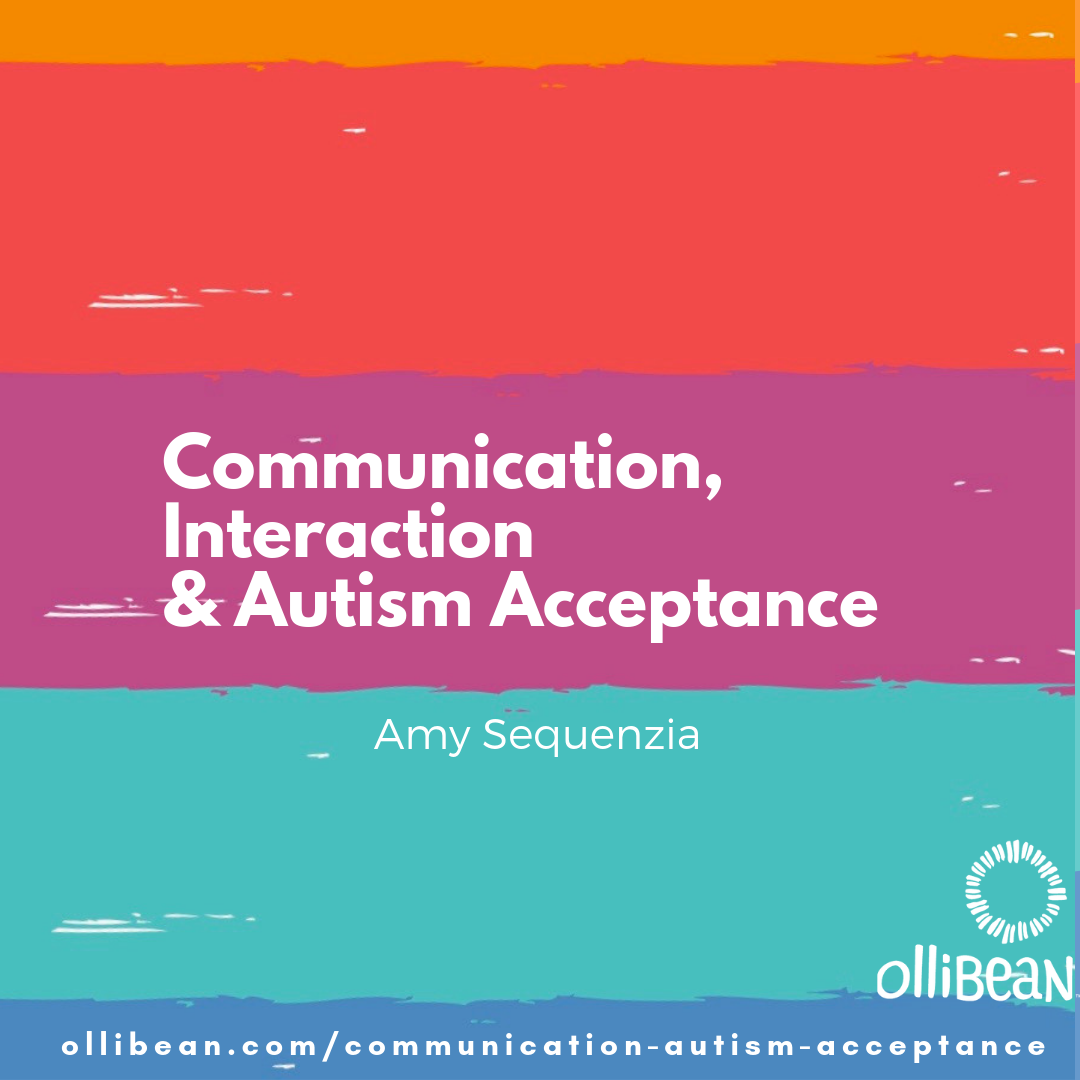
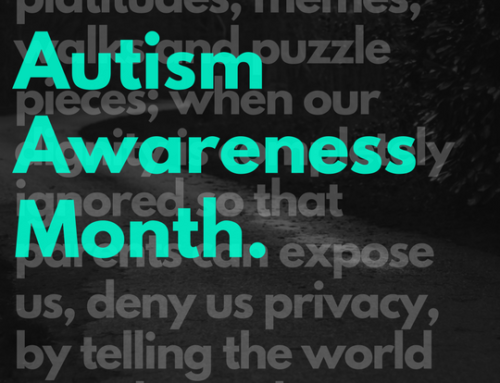
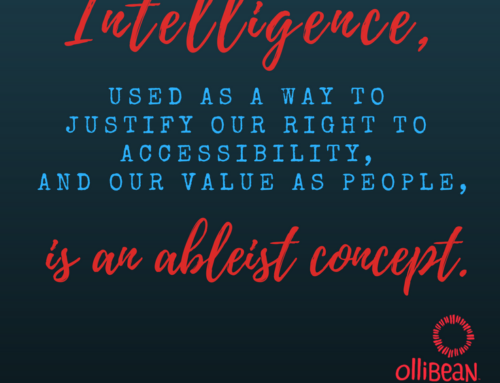
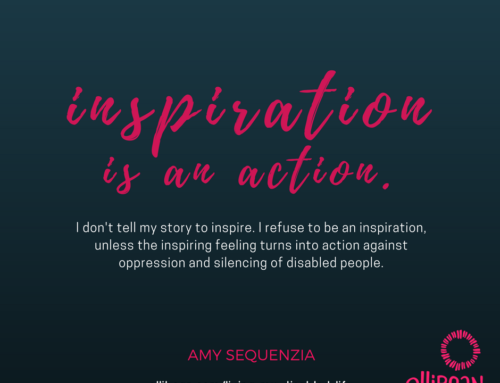
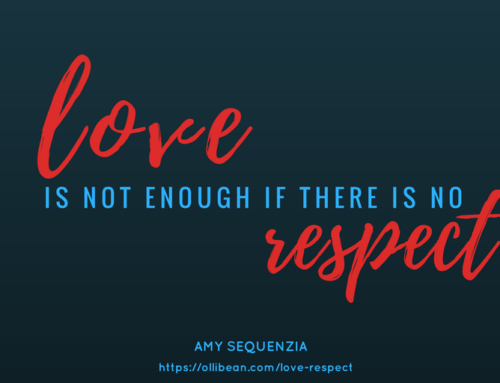
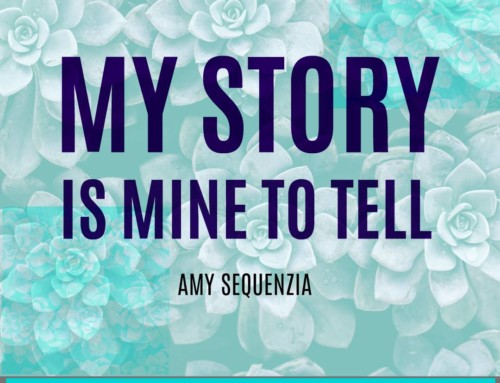
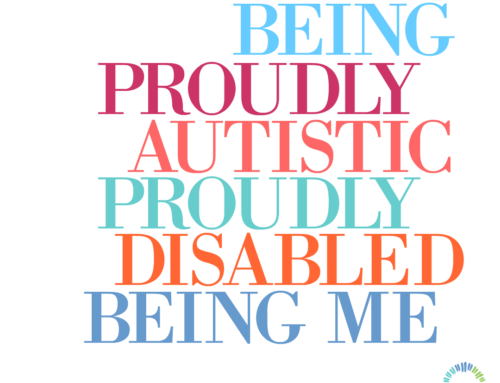
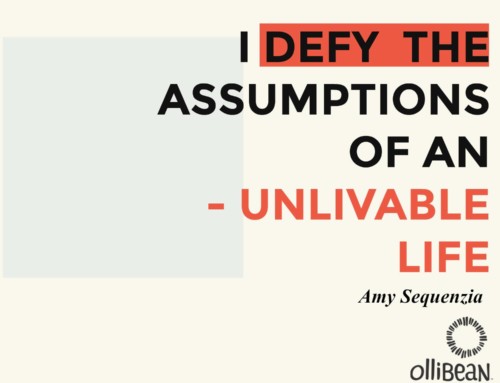
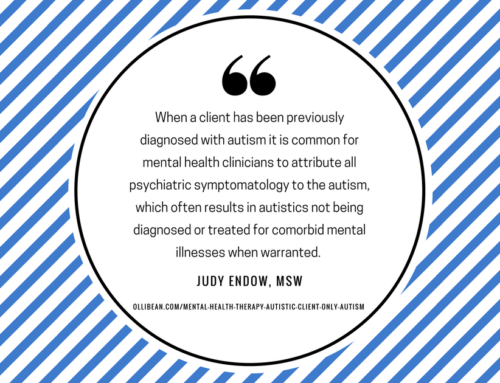
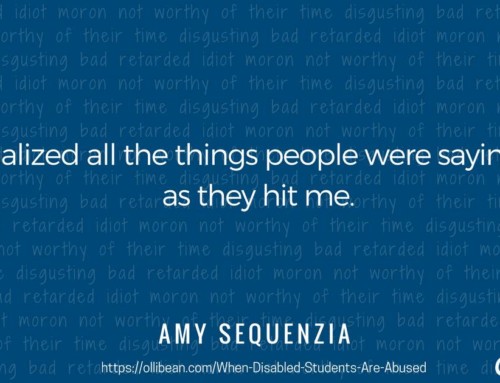

I find I verbalize at times because it is expected. Those close to me know the difference between me placating a social situation and actually being engaged. It can still be exhausting.
“But Amy, how can I believe my autistic daughter really loves me when she only hugs me instead of saying those three magical words?” ~ Jill Escher, probably.